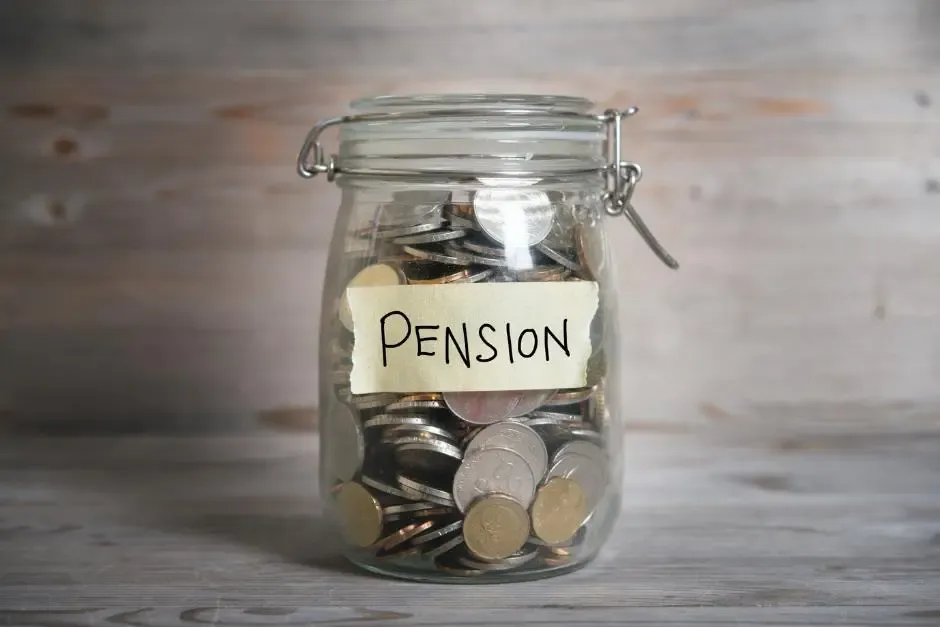What is a Family Pension?
Written by
Reviewed by
Sahil Rawal
BFSI Expert
Sahil Rawal is a digital & brand management specialist with over 10 years of experience in Financial Services Industry. Life insurance professional with expertise in digital marketing strategy, website content marketing and brand communication designed to increase brand awareness, drive engagement & sales.
How Does A Family Pension Work?
According to the Comptroller and Auditor General of India report, children up to the age of 25 can receive the family pension or until they are not married or have not started earning. Their monthly income should not be more than Rs 9000 plus the Dearness Allowance.
The employee has no control over the family pension as he is not required to contribute to it. This is because it is not the property of the deceased Pensioner. Therefore, the entitlement for family pension cannot be decided by succession certificate.
Family Pension Rules
According to the family pension rules, the Pensioner must decide who will receive the family pension after their death.
To make it easier for you to understand, we have listed the family pension rules below
1. Eligibility for spouse
- Family pension is payable to widow or widower up to the date of death or re-marriage, whichever is earlier.
- The family pension will continue to be paid to a childless widow on re-marriage if her income from all other sources is less than the minimum of the family pension.

2. Eligibility for children
- Family pension to the children will be paid in the order of their birth. The younger of them will not be eligible for family pension unless the elder next or above them has become ineligible for the grant of family pension.
- Where the family pension is payable to twins, it will be paid to them equally.
- In the case of an unmarried son, the family pension will be payable until he turns 25 years of age or gets married or until he starts earning his livelihood, whichever is the earliest.
- If both the wife and husband are eligible to the provisions of the family pension 1964, the surviving child or children can be granted the family pension.
- A child adopted by the Pensioner’s spouse cannot be treated as the family member of the deceased Pensioner.
Family Pension Rules After Death of Pensioner

According to the rules laid down by the Department of Pension and Pensioner’s Welfare (DoPPW), there are some guidelines on how the family pension is disbursed to the family members of the Pensioner after their demise.
Here is a step by step guide on how one can claim pension after the death of a pensioner-
- You have to approach the pension paying bank along with the Pensioner’s half of the PPO (Pension Payment Order) and Death certificate.
- The manager will tell you everything about the procedure followed in that branch.
- If the Pensioner has a joint account with the spouse, they will have to submit the death certificate and a simple application to activate the pension. However, if the Pensioner does not have an account, they will have to open a bank account in that branch.
- The bank will verify the identity of the family members by demanding their Aadhar card, Pan Card and a joint photograph.
- The bank will update the date of death to activate the pension plan. Half of the Pensioner’s PPO will be returned to the spouse.
- After completing all the formalities, the bank will intimate the CPPC and start crediting the pension to the family member’s bank account.
Family Pension Rules For Central Government Employees
As per the rules laid by the Indian government, the family pension shall be calculated at a uniform rate of 30% of basic pay in all cases and shall be subject to a minimum of 3500/-pm and a maximum of 30% of the highest salary in the government.
It is essential to understand your risk-taking ability in terms of age, income source, and more considerable expenses such as a child’s education, loans, and marriage.
When you are nearer to retirement, the focus should be on availing of the benefits from the assets acquired over time. You can enjoy them in the form of a monthly income or a lump-sum amount on retirement.
Family Pension Rules For Widow Daughter
If a widowed daughter wants to claim a family pension, she should be 25 years of age or up to her marriage/re-marriage date or should be earning her livelihood, whichever is earlier.
Family Pension Rules For A Disabled Son
Suppose the son of a government servant is suffering from any disorder or disability in mind or is physically crippled or disabled so that he cannot earn a living. In that case, the family pension will be payable to such a son throughout his life. The main thing to note is that the family pension to a child suffering from a disability or disorder of mind is paid through a legal guardian.
Difference Between Pension And Family Pension
The major difference between a pension plan and a family pension is that the pension plan is a benefit that an employee receives after retiring. However, in the case of the family pension, the retirement benefit is passed on to the family members after the death of the Pensioner.
Family Pension Taxability
Family pension received by a family member of the Pensioner is taxed under the category “Income from other sources.” Family pension exemptions on un-commuted pensions are set to a maximum of ₹15,000 or a third of the pension received - whichever is lower.
The primary benefit of the commuted pension is that you get lump-sum amounts. You can then use them based on your needs while claiming tax benefits. When filing their tax returns, family members receiving pension payments must report them under the ‘Any other income earned' in the sources scheduled in Income Tax Return 2 (ITR 2).
There are two types of pensions-
1. Commuted pension: Payment of the pension as a lump sum amount
2. Uncommuted pension: pension income is paid monthly
Differences Between Uncommuted Pension Taxability And Commuted Pension Taxability
Uncommuted pensions or periodical family pension payments are fully taxable as they fall under their income. Family pension exemptions apply to commuted pensions or lump sums for some cases.
Employees of the government enjoy tax-exempted commuted pensions while non-government employees are partially exempted. A third of the amount is tax-exempted if you get a gratuity with the monthly allowance, while the remaining is part of taxable income. If it is only the monthly pension, then half the amount is tax-exempted. In both cases, it should be 100% of the pension being commuted.
More plans for you
Frequently Asked Questions
Who is eligible for pension?
How is pension calculated?
Who is the Pension sanctioning authority?
Is there any online calculator to calculate the revised pension?
From where can we download the pension/ nomination forms?
When can a Government servant apply for voluntary retirement?
Can a pension account allowed to be opened in any bank’s branch?
When does a family member become eligible to get a family pension?
Is family pension is available to widow/ widower after re-marriage?
ARN: Aug23/Bg/05K
www.pensionersportal.gov.in/ClassOfPen.aspx
www.persmin.gov.in/pension/rules/pencomp7.htm
Popular Searches
- Whatsapp: 7428396005Send ‘Quick Help’ from your registered mobile number
- Phone: 0124 648 890009:30 AM to 06:30 PM
(Monday to Sunday except National Holidays) - service.helpdesk@maxlifeinsurance.comPlease write to us incase of any escalation/feedback/queries.
- Whatsapp: 7428396005Send ‘Hi’ from your registered mobile number
- 1860 120 55779:00 AM to 6:00 PM
(Monday to Saturday) - service.helpdesk@maxlifeinsurance.comPlease write to us incase of any escalation/feedback/queries.
- 011-71025900, 011-61329950(9:30 AM to 6:30 PM IST Monday to Saturday)
- nri.helpdesk@maxlifeinsurance.comPlease write to us incase of any escalation/feedback/queries.








